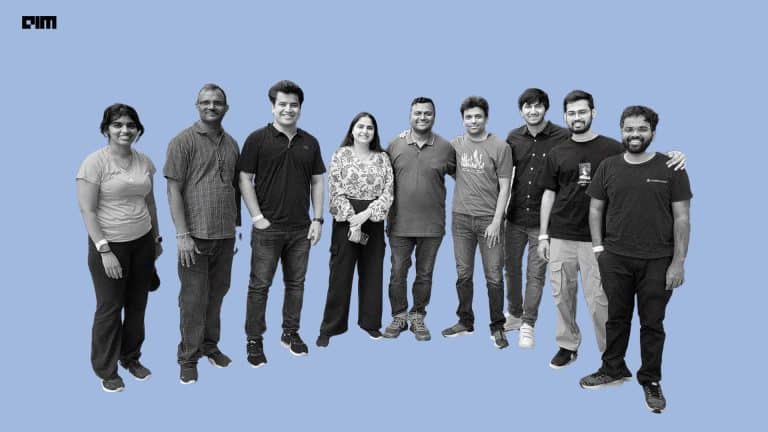Acknowledging that data exists and can do wonders is passé. Organisations today need to do much more than just identify big data. With the shortage of data scientist skills worldwide, it is difficult for an organisation to fulfil its dream of capitalising on data science, as it is hard to find the exceptionally skilled person – who is a machine learning expert, a data engineer, a developer, a storyteller and a business analyst.
A data science team, if carefully built, with the right set of professionals, will be an asset to any business. It’s a fact that the success of any project is dictated by the expertise of its resources, and data science is no exception to this golden rule of thumb. Professionals with varied skill-sets are required to successfully negotiate the challenges of a complex big data project.
For a data science project to be on the right track, businesses need to ensure that the team has skilled professionals. However, here comes the point where knowing the kind of team the business requires is also vital.
Choosing The Right Team-Type:
Rooted Teams: Embedded data science teams establish data scientists within business units. They help the business unit identify, understand, and ultimately solve problems that come up. Data scientists for embedded teams are or have an interest in becoming experts in the domain of that business. They may meet with data scientists in other business units, but the primary reporting relationship is to the business unit.
Discrete/Specialised Teams: Discrete, or specialised, teams establish “Data Science as a Service” within the organisation. They all work together, sit together, and report to the same manager. Business problems are investigated and solved as a unit.
Hybrid/Matrix Teams: Hybrid or Matrix-type teams seek to combine the best of both of these approaches by placing a team across multiple reporting lines. This may be the framework of choice if the organisation itself already uses matrix management structures. Typically, these implementations place the team as a horizontal group supporting multiple verticals.
How to Get an Industrious Team?
Putting together an entire team has the potential to be more difficult. The truth is that data science is a big field, and a cross-functional team is better prepared to handle real world challenges and goals. Now that we have established the types of teams that can be set up, let us look at the factors that ensure the smooth functioning of a data science team.
Skillset: Getting the right talent to fill in positions in the team is the first and foremost way to move forward. Data scientists should be able to work on large datasets and understand the theory behind the science. They should also be capable of developing predictive models. Data engineers and data software developers are important, too. They need to understand architecture, infrastructure, and distributed programming.
Some of the other roles to fill in a data science team include the data solutions architect, data platform administrator, full-stack developer, and designer. Those companies that have teams focusing on building data products will also likely want to have a product manager on the team.
The Processes: Data science teams need data to understand and implement in different areas of the company to bring in positive results. The setup should be such where the team is not being handcuffed to a slow and tedious process, which will limit effectiveness. Ideally, the team will have a good working relationship with heads of other departments, so they work together in agile multi-disciplinary teams to make the best use of the data gathered.
The team needs the ability to access and watch data in real time. It is important to do more than just measure the data. The team needs to take the data and understand how it can affect different areas of the company and help those areas implement positive changes.
The Platform: When building a data science team, it is also important to consider the platform your company is using for the process. A range of options is available including Hadoop, HBase and Spark. Some of the other platforms to consider include the Google Cloud Platform, and business analytics using Excel. Understanding the fundamentals of these systems can provide a good overall foundation for the team members.
Last but Not the Least…
Despite keeping a check on all the above-mentioned factors, there might still be other considerations to keep in mind before sealing a data science team.
Teams vs. Unicorns: There is a path to data science success that does not involve seeking that one perfect person. Rather than hunting one person with development, mathematics, statistics, and business domain expertise assemble a team of people with strong foundational skills and a drive for success. Provide them with a framework and environment within which they can work together and complement one another.
The infrastructure: Get the right infrastructure set up at the right time and in the right way. Spend some time getting the infrastructure in place so that the team can start having an impact right away.
The route: Data scientists may have their favourite tools and techniques. Make sure that they are not so tied to a particular tool set or machine-learning algorithm that they lack the flexibility to work on your mission. A related risk is getting caught up working on secondary or tertiary problems that are interesting, but likely to have little impact on your main goal.
Conclusion:
With increasing demand for data scientist skills and continued talent crunch in the industry, organisations are more inclined towards building effective data science teams. Seeing the number of firms in the big data space trying to establish big data teams, one final truth appears to resonate – one cannot nickel and dime on talent.



















































































